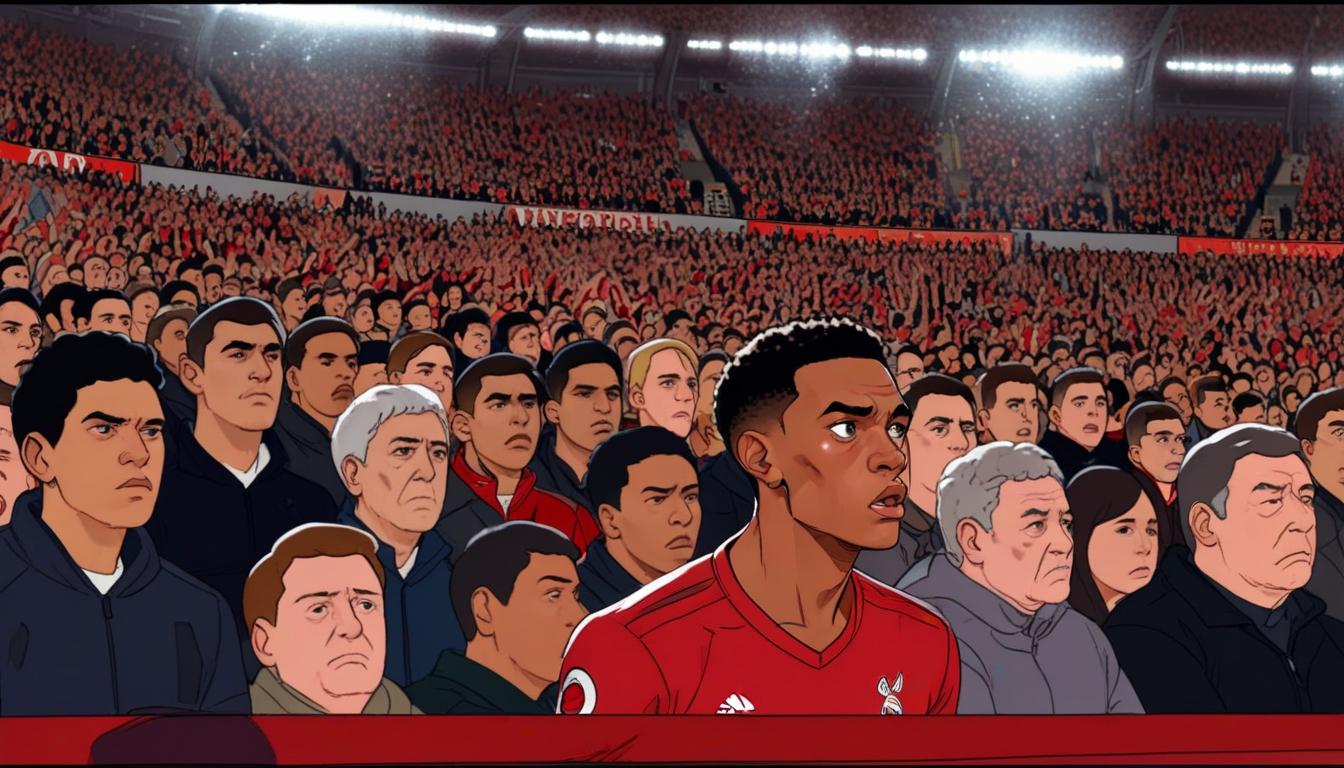The atmosphere at Anfield, usually a cauldron of vibrant support, turned tumultuous during a recent match against Arsenal, reflecting a disheartening split among fans over Trent Alexander-Arnold's future. What began as a celebration rapidly descended into controversy as local supporters voiced their anger towards the player. This division became particularly palpable when Alexander-Arnold was introduced in a game Liverpool led 2-1, leading to an unprecedented chorus of boos directed at one of the club's own.
Historically, Anfield has been a bastion of unwavering loyalty. Fans typically reserve their wrath for opposing players, yet Alexander-Arnold's recent announcement of his impending departure to Real Madrid shifted the dynamic. Many supporters felt blindsided by his decision to let his contract run down, which culminated in a vocal display of frustration. Although he has consistently delivered on the pitch, his declaration of wanting to win a Ballon d'Or over another UEFA Champions League title with Liverpool left many questioning his commitment.
The anger directed at Alexander-Arnold underscores a generational divide among fans. While younger supporters seemed more inclined to express their discontent vocally, older fans appeared deeply uncomfortable with the public display of ire towards someone who has, for many, epitomised the club's spirit. This discord escalated during the match, with stewards intervening twice to prevent physical altercations among fans.
After the match, Dominik Szoboszlai, a close friend of Alexander-Arnold's within the squad, visibly reacted to the boos. His gestures spoke volumes about the emotional turmoil that enveloped the team, highlighting that the backlash had broader implications than just a single player's experience. Instead of leaving the pitch amidst applause, Alexander-Arnold faced a clash of loyalty that few players in recent memory have had to navigate.
Manager Arne Slot made attempts to mend the rift, addressing the volatile reactions during the match. He underscored that players who have contributed significantly to the club deserve support, especially during trying times. Yet the aftermath of this incident raised serious questions about the culture at Anfield and the expectations of its fanbase, particularly as the club positions itself for a resurgence in the Premier League.
While Alexander-Arnold's performances have won accolades, the recent negative reactions are not isolated. A comparable scenario unfolded during Liverpool's encounter with Manchester United, where he faced similar hostility, echoing the sentiments of those disgruntled supporters. Contrastingly, during a subsequent Carabao Cup match against Tottenham, Alexander-Arnold received a more positive reception from away fans, indicating that the tide may not be turning universally against him.
As Liverpool navigates the challenging waters of player loyalty and fan expectation, it remains essential for the club and its supporters to reconcile these differences. The current situation serves as a poignant reminder of the complexities inherent in modern football, where the emotional investment of fans can swiftly shift from adoration to derision, often with devastating consequences for those at its heart. In a city where the bond between club and community is traditionally strong, the reaction to Alexander-Arnold suggests that even the most revered players are not insulated from the roaring tide of public opinion.
Reference Map
- Paragraph 1: [1]
- Paragraph 2: [1], [2]
- Paragraph 3: [1]
- Paragraph 4: [1]
- Paragraph 5: [2]
- Paragraph 6: [1], [2]
- Paragraph 7: [5], [1]
Source: Noah Wire Services
